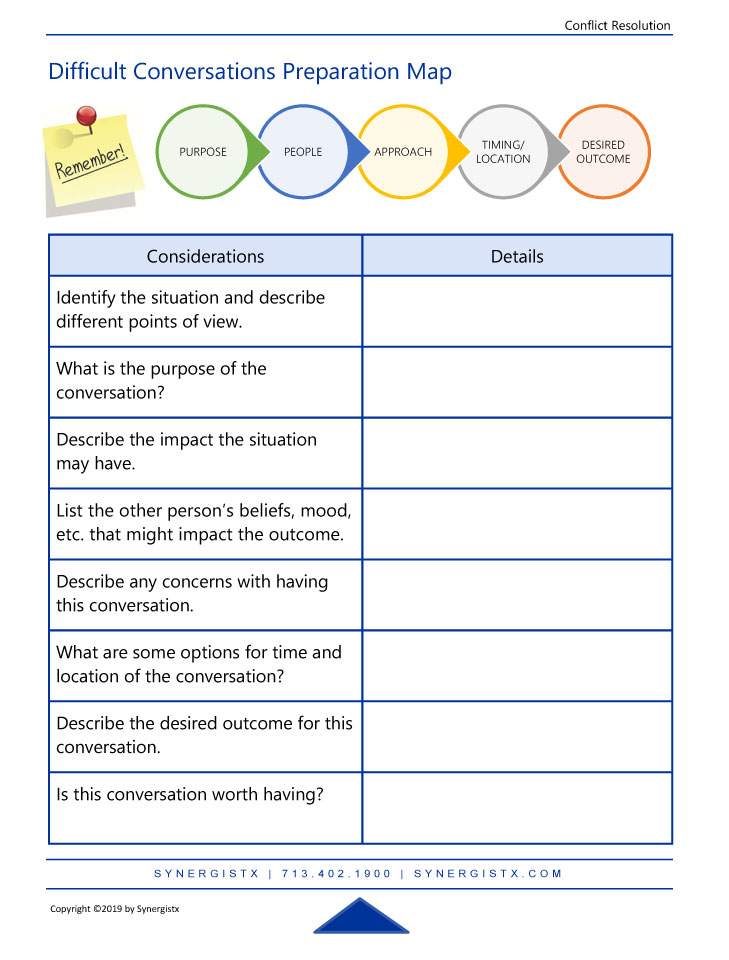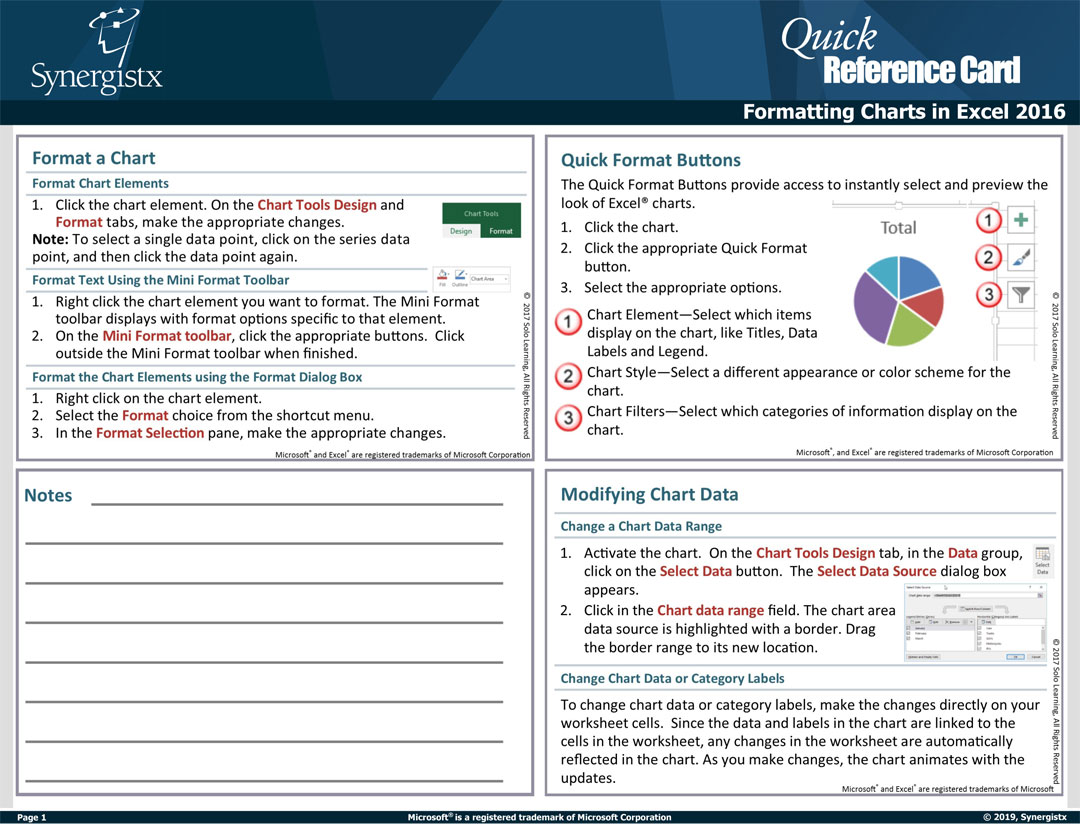What you will experience
Leadership Video
The more you prepare for difficult conversations the more effective you can be.
How to Prepare for Difficult Conversations
As Benjamin Franklin noted, “Failure to prepare is preparing to fail.”
The more you prepare for an upcoming difficult conversation – such as asking someone to do something you know they do not want to do, like work overtime; or letting an employee know he or she is not getting a bonus or a raise – the more effective you can be if, or when, potential conflict arises.
Before any difficult conversation…
- Identify the purpose for the conversation.
- Be mindful of the other person (beliefs, biases, and current mood).
- Know the various approaches to conflict.
- Consider timing and location for the conversation.
- Identify the desired outcome.
Identifying the purpose of the conversation begins with assessing the available facts. Make sure you have all the information you need to logically and diplomatically conduct this conversation.
Next, empathy is an essential part of any difficult conversation. You do not have to agree with the other person’s standpoint, but you must be willing to consider the issue from his or her perspective.
Viewing the situation through the lens of empathy will sharpen the clarity you need to navigate a difficult conversation.
How do you prepare for a difficult conversation?
What can you do to improve this process?
Difficult Conversations Preparation Map (see below):
Related File

Technology - Printable Quick Reference Guide
